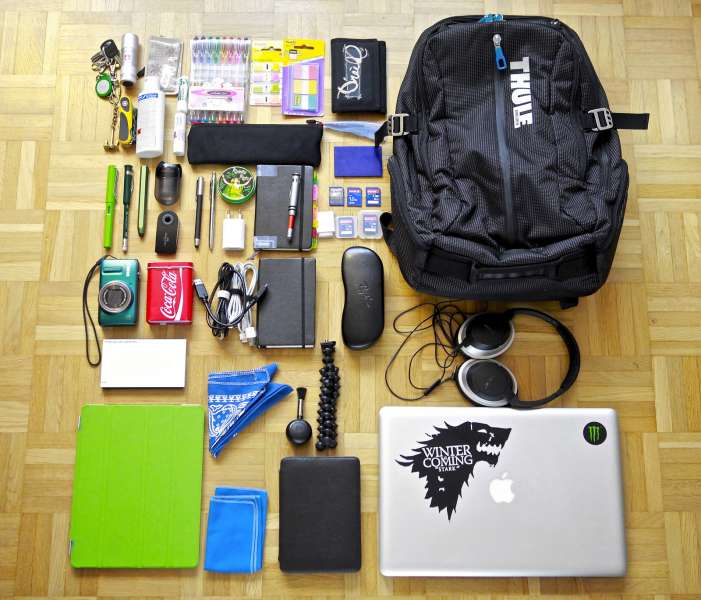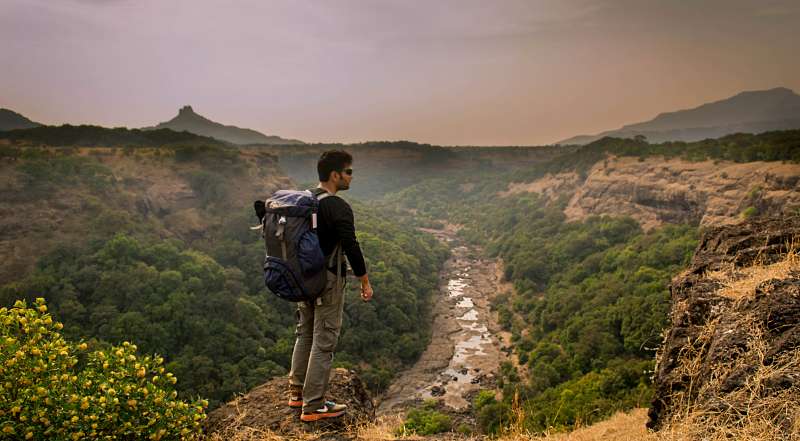“Don’t be scared to walk alone. Don’t be scared to like it.” — John Mayer
A year back, two of my friends had visited Paris. While their Facebook and Instagram obviously indicated that they had a beautiful time, upon talking more about the trip to one of them I learnt something that had failed to make its way through their social media; the fact that they had gotten mugged. Now, I have gone on quite a lot of trips myself, but never alone. Hearing that incident reduced my desire to travel solo drastically. But last week, one of my closest friends had gone on an exchange program to France and even though he had one of his classmates bunking up with him, he preferred to travel the city by himself. His experience differed slightly from my other two friends. He told me that the French are warm people whose love for football, wine, food and fashion (not necessarily in that order) and that he had no trouble in regards to safety.
So I have realized that, no two people’s experience is the same and that it depends a whole lot on oneself.
To make that experience of yours a memorable one, here are a few things to keep in mind before you begin your solo travel. Happy Travelling!
Stage 1: The Idea
- Research- So you have decided to travel by yourself. Now comes the hard part of deciding which place to go to. This is crucial because this trip will give you an idea on how comfortable you are with travelling alone and it might be that trip that all your future solo trips will be compared to. Needless to say, the internet has zillions of blogs, travel agents, websites, books that give you information. So depending on your preferences, narrow down to 5 options to choose from.
- Prioritize- Choosing a place will be based on several factors; safety, costs, foreigner friendly, food preferences. You have to get your priorities in order before deciding where to go. But the foremost factor should be safety because since you will be travelling alone, there will be no companion to take care of you in times of need.
- Discuss- When you have narrowed it down to fewer cities than before, it is best to discuss your idea with family and friends and if possible, also with people who have had an experience of travelling to that place as they would possess firsthand information. Ask important questions based on their hotel, their tour operator, the places they believe are a must-visit, the food and also note down the number of anyone they might know who may be of help to you in the chosen location.
- Stalk- Don’t get me wrong. Certain cities will have associations based on ethnicity and members of this association will be welcoming when they know that “one of their own” needs their help. Try to find out the contact numbers of the Head of such associations and get in touch with them prior to your trip so that your planning can be a lot easier. This is from a personal experience of mine when my family had decided to visit Hong Kong. My Dad had gotten in touch with someone of our ethnicity and the person was so helpful in getting us around the city and making sure we had a good time.
Stage 2: The Planning
- Plan in advance- Some places have unique experiences that you should not miss which may be seasonal like La Tomatina in Spain, Carnival in Rio, Khumbh Mela, India etc. Knowing the dates, accommodation around that area, costs expected are a few things to keep in mind before anything else.
- Have a back-up plan- this is so useful in case your plans fall through and instead of being dejected you could always opt for the second option. It was also be useful if you keep your family and friends informed about your itinerary and back-up plans so that they’ll be aware of your whereabouts.
- Manage your expenses- If you are one of those people who always manages to save money at the end of the month, pat yourself on the back. (Good job!) But if you have not managed to save up, then here’s the chance to. Planning for a trip can also help you to finally set your priorities right and more attentive to where you spend it. Keep track of your expenses each day and then figure out which is necessary and which one can be put off till after your trip. Recheck your unavoidable expenses in the trip and make sure you have set aside money for that.
- Packing- Packing has to be light so that you can manage it by yourself without looking for help in an unknown place which may invite trouble. Every trips demands your carry-ons to include the essentials. These are your medicines, the name of the place you are staying (written in the local language), your travel documents, and some emergency cash in case you get mugged and lose your wallet (get creative on where you hide that cash). The Lonely Planet series of various countries and cities have been serving as a guide to my family for a number of trips and they do not disappoint. Be sure to get one and glance at it before you embark on the journey. Have a pepper spray at your disposal for emergencies and always note down your travels and the little things that you notice about a place such as a ritual or about people you come across. If you are a bibliophile, pack that one book you have read countless times before and never get tired of. If you are into photography, pack your gear and ensure you make people envy you by constantly “checking in” to places on Facebook. Roll your clothes and pack them to save space.
- Buy travel insurance- It is never wrong to have a safety net before taking up something new. A good insurance plan will cover all your major perils and it does not cost much compared to what you may have to pay for damage suffered.
- Book/ Confirm accommodation- Accommodation need not always be the first priority for people. But it is important because some hotels can service you with tour guides and tips on getting around the city. Accommodation can differ between hotels/homestays/BnBs/hostels, all of which depend solely on your preferences. But for a solo traveler, it is good to stay at place where there is a constant movement of people. This will not only give you a chance to interact with other fellow travelers but also ensure safety.
- Visa on arrival/prior to booking flight- This is imperative because lately there have been instances where people have been denied visa on arrival also. This is not the case usually but it does happen. The reasons for visa being denied can depend on your nationality, your reason for visit, the items you carry (which may be legal in your country but not in the one you are visiting) etc. So do a thorough check up on that too.
- DEALS! – Keep checking all sorts of travel apps that offer you unbelievable deals. Your hotel’s per night rent will differ from its own website so look up on all possible platforms for that but also check the amenities you will be entitled to within that price.
- Turn on private browsing- Airlines and other travel sites record your activity by installing cookies to your browser. So the next time you revisit the website the prices may have increased from the last time. So to stop yourself from getting robbed, it’s always best to go incognito.
Stage 3: The Trip
- Commute around the country/city- A number of cities around the world now have metro systems that are a blessing to tourists because it helps them cut back on travel costs within the city. These metro systems and other public transport vehicles are synced with a single travel card. For example, in Hong Kong, the Octopus Card can be used at the metros and once your trip is over, you can even return the card in exchange for the deposit and the balance left in the card. Dubai has an app called Wojhati which helps you plan your travel between two places by showing different options consisting of bus and metro.
- Water- Airports don’t allow you to carry water past security check. Therefore carry a few empty bottles so that you can fill them in one of the water dispensers, instead of paying a ginormous amount for an essential commodity at the airport. Many diseases are communicable through water. Therefore, buy a portable water treatment device to ensure safety.
- Portable charger- Thanks to a bunch of high school teens, portable chargers have been God sent to those unfortunate few whose phones keep dying on them. Don’t forget to buy one of these before leaving on your trip and charge the portable charger even before you charge your phone.
- Passport- Email yourself a scanned copy of your passport to serve as a back up in case you lose yours.
- Pack an extension charger/travel adapter suiting to different pins
- Use hotel’s wifi to download the Google Offline Maps which will save you a lot of data.
- Learn a few basic phrases in the language of the country you are visiting. Later, you could even be a self-proclaimed linguist.
- Eat at all kinds of restaurants ranging from local diners to high end ones where the maître de can be intimidating and most importantly try out the local dishes without fail.
- Seal leak able toiletries with tape and store them in waterproof pouches. Zip lock bags are also a great option.
- Carry a dummy wallet to be one step ahead of pickpocketers.
- BE POSITIVE and start off the trip on a good note.
Not every trip may live up to your expectations. There will be some that surpass your imagination and yet some may leave you wondering why you even decided to embark on the journey. But in the end, what matters is what you take from each trip; the people, the locales, the food, the lessons. Happy Tripping!




